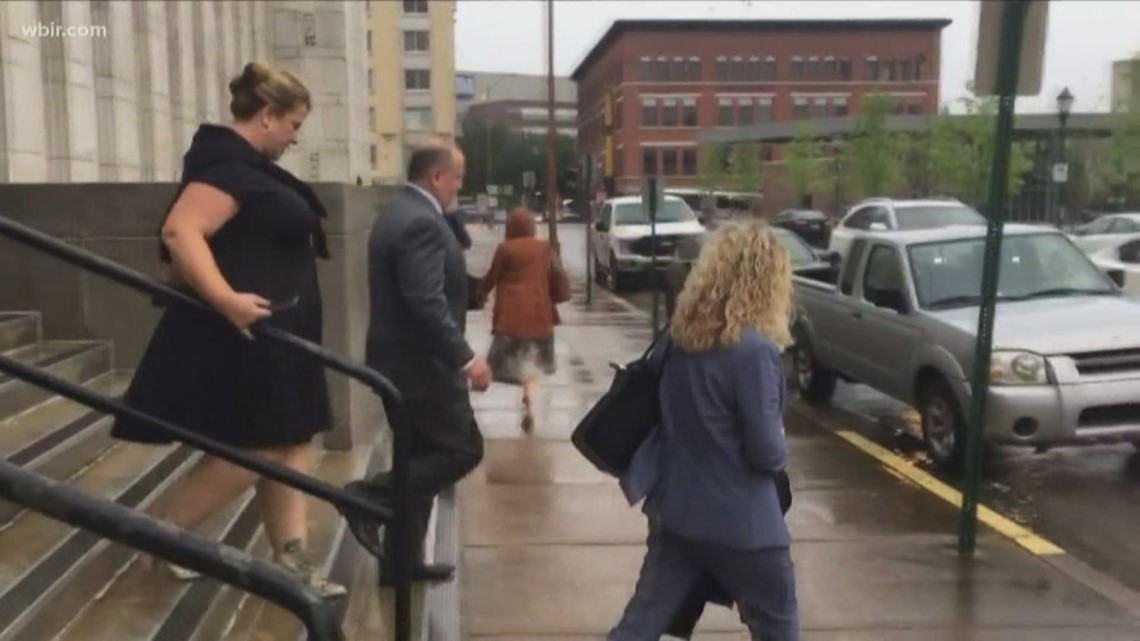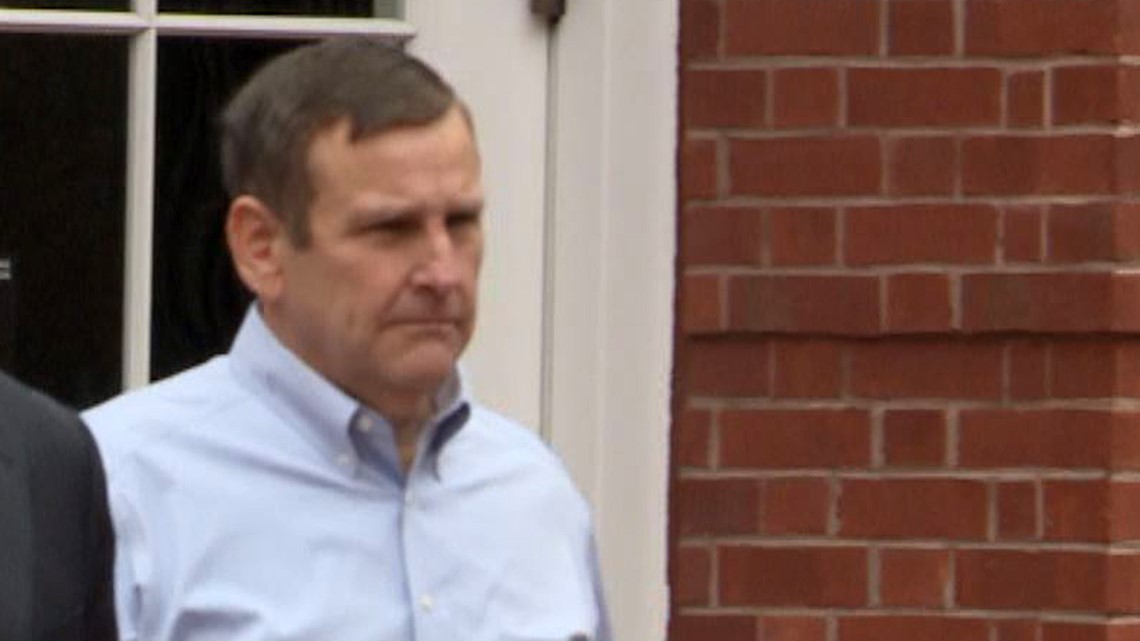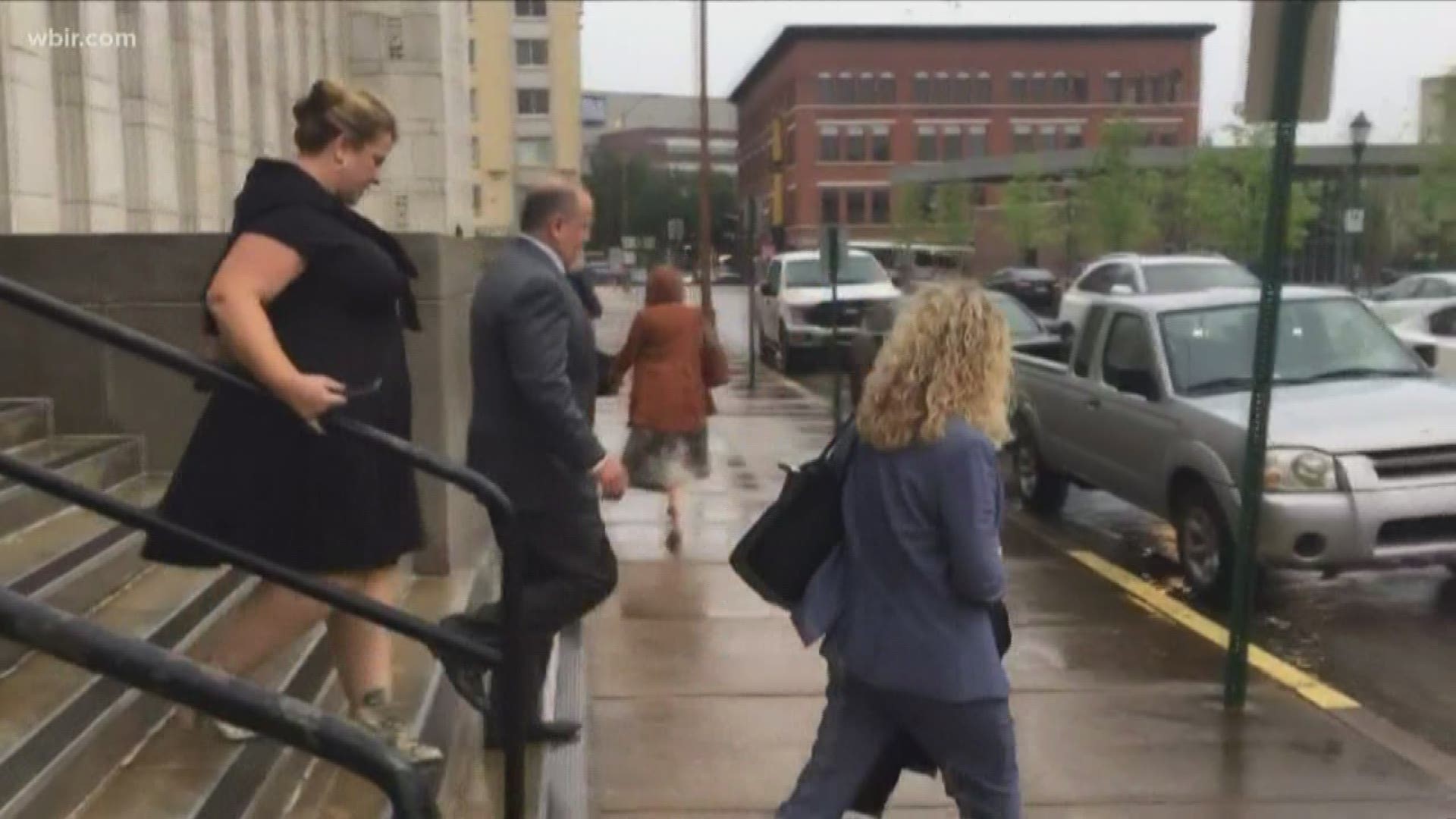In vigorous argument with high stakes for three defendants, defense attorneys and a government prosecutor argued Thursday before an appellate court over the propriety of introducing racially charged taped conversations against the former president of Pilot Flying J.
The secret recordings, made quietly at an October 2012 gathering of Pilot executives, were only supposed to be relevant to Mark Hazelwood, the former president and 30-year devoted Pilot employee.
But other defendants -- Scott Wombold and Heather Jones -- also were standing trial with Hazelwood at the same time.
The defense told a three-judge panel of the 6th Circuit Court of Appeals on Thursday the tapes prejudiced every defendant, presenting words, including the "N word", that were so damaging the jury couldn't put them out of their minds.


Government prosecutor Trey Hamilton countered, however, that District Court Judge Curtis Collier carefully instructed the panel about how they were to weigh the evidence and that it only pertained to Hazelwood and not the other two.
He told the judges the government had to offer the evidence to counter the defense's claim that Hazelwood was so dedicated to Pilot that he'd never engage in conduct that could subject it to harm.
Jurors convicted Hazelwood of mail fraud, conspiracy to commit mail fraud and witness tampering. They convicted Wombold, a former vice president, of mail fraud, and they convicted Jones, a former customer account rep, of mail fraud and conspiracy to commit mail fraud.
Each faces prison, with Hazelwood looking at the longest term , 12 1/2 years. They're out on bond while their cases are appealed.
The government said the three were part of a scheme by some sales employees at Pilot to cheat some diesel customers of promised fuel rebates. Pilot ended up paying a $92 million fine for what its employees did in the scheme as well as millions in civil settlements.


The hearing Thursday morning was held in Cincinnati, the court's base. A recording of the hourlong matter was posted to the court's site for public review.
The recordings that Hamilton presented at trial in January 2018 to a Chattanooga jury showed Hazelwood disparaging the people of Cleveland, Ohio, and requesting the playing of a racially charged song by David Allen Coe, among other things.
David Debold, representing Hazelwood, described the recordings as more than eight minutes of "some of the most racist and sexist words imaginable." And his client uttered some of them, he noted.
From a legal perspective, they were wrongly introduced, he said. On their face, they created improper prejudice against Hazelwood, he said.
Attorney David Esquivel, representing Wombold, said his client was at the East Tennessee lake house where the secretly recorded meeting was held but had nothing to do with the conversation. He took no part in the conversation, Esquivel said, but the jury may have inferred that he did.
They were given transcripts of the conversations that included reference to unidentified speakers. Jurors could have incorrectly assumed Wombold was one of those people.
More importantly, he argued, the evidence couldn't have meant that much to the government because they never again referred to it after presenting it to the jury. It didn't come up in their closing arguments, which summarized their case, he said.
Ben Vernia, who represented Jones at trial, said Judge Collier shouldn't have let a government witness testify who also was a Pilot employee about Pilot's accounting of the rebates.
Vernia also objected to the use of the tapes at trial when Jones had nothing to do with them. She wasn't at the lake house when the conversations occurred.
"The recordings painted that company -- her workplace, her supervisor -- in a very sordid, horrible light," he said.
Hamilton countered that the government had to respond to the defense's insistence that Hazelwood was a dedicated, essentially lifelong employee who would never do anything to hurt the company. As part of its proof, the defense showed a video of Hazelwood appearing as a truck driver.
The defense wanted to show his sincerity and dedication to the profession.
Hamilton said the tapes belied that, and the government needed to counter what Hazelwood was trying to show. Jurors also were instructed to ignore the tapes in the case against Wombold and Jones, he argued.
"We wanted to show that it was the offensiveness of the comments, its striking nature, that gave it its probative value," Hamilton said.
Senior Judge Richard F. Suhrheinrich and Judges Bernice Donald and Eric Murphy heard the case Thursday, with Donald directing the lawyers. All the judges interrupted the lawyers often with their own questions.
Suhrheinrich challenged Hamilton repeatedly on use of the tapes.
"You’re the guy putting the evidence in. You wanted those racial comments," he said.
Murphy pushed both sides to defend their ground.
He noted it appeared that the public would indeed have reacted badly against Pilot if they'd heard Hazelwood's remarks. But the judge also observed that if he were teaching a law class about the prejudicial dangers of evidence you might not want to use, "I would envision this case fitting that analysis to a T."
Donald sounded skeptical of Vernia's objection to using the accounting employee but didn't engage much in the question of Hazelwood's racist comments.
As the timed hearing came to an end, she thanked the lawyers.
"You'll receive an opinion in due course," Donald said.

